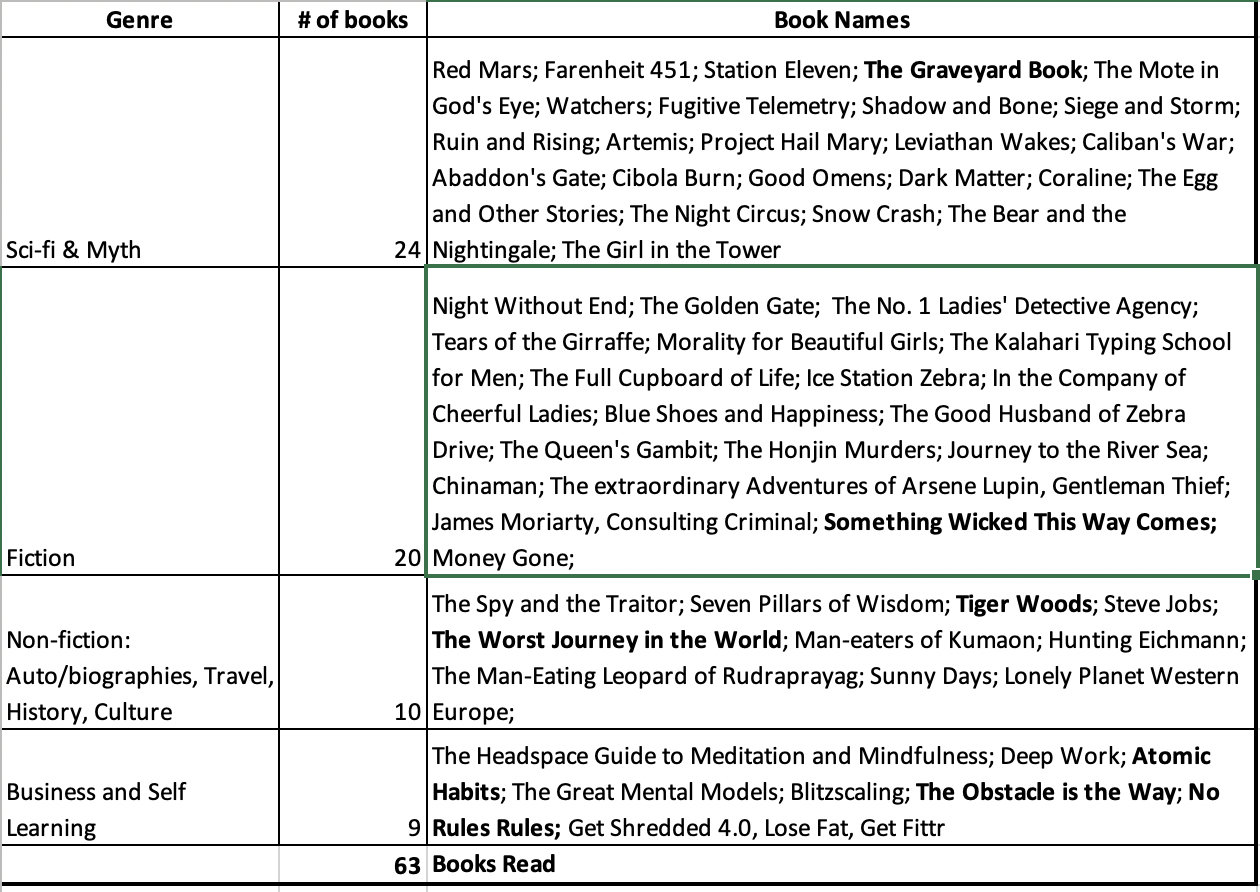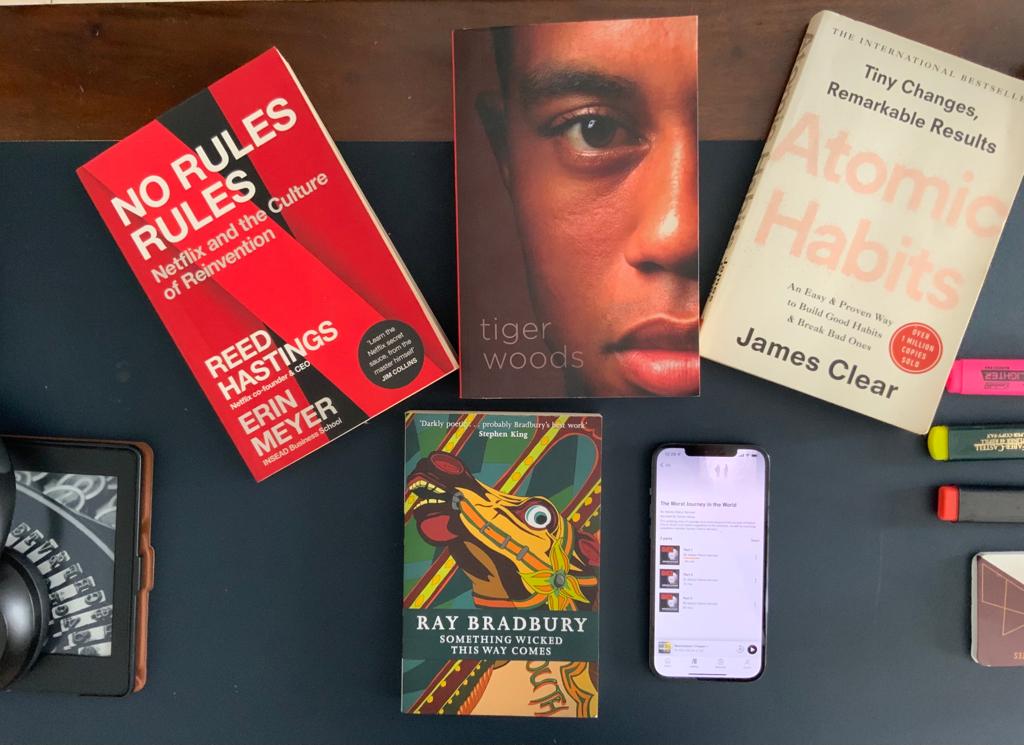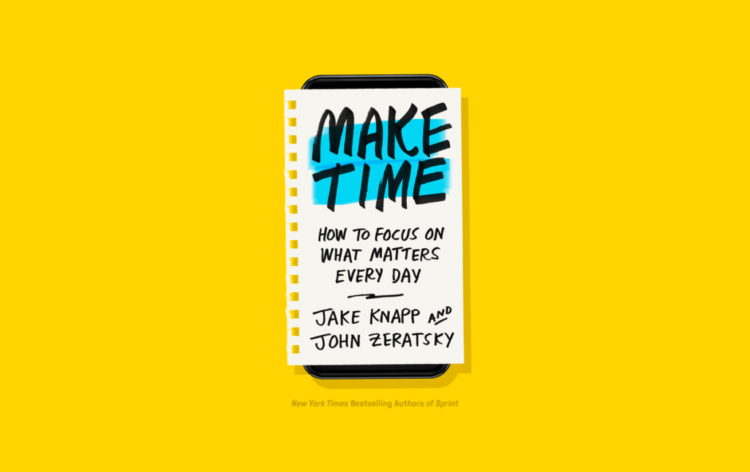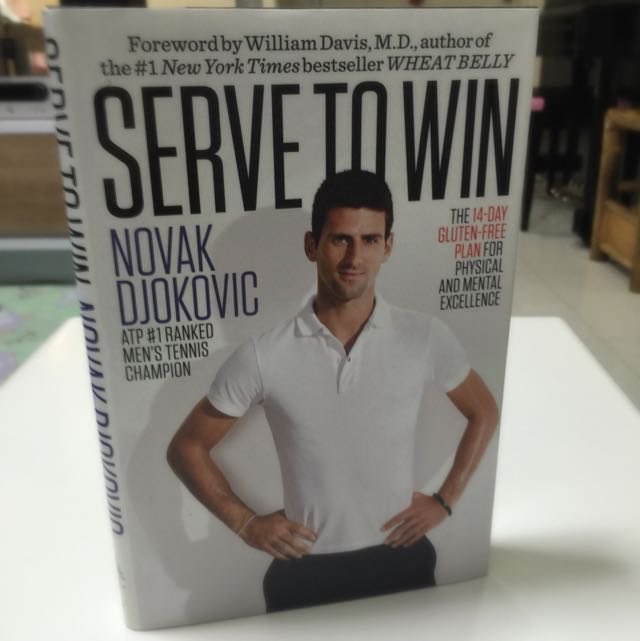Reading is an endeavour of love. Unlike many things we seek in life, reading doesn’t give you immediate payoffs – though the yields of a lifetime of reading are sometimes under-appreciated and often incalculable. As a somewhat introverted kid growing up in a large joint family, books were my closest friends and farthest escapes.
But sometimes, life is incompatible with one’s best intentions. Things that seem so routine and normal, just no longer are, and before you realise they are gone. As I reached college and got into the grind of the work-life, I lost this first love somewhere. In 2016 with the birth of my son, I started thinking about what parenthood means for me and things I want to share with him. With a start, I realised that I had not been reading for some time – something that I definitely wanted for my son.
And so, starting in 2017, I set myself a target of reading at least a book a week. I have been reading more than 60 books a year for the last five years now. What I read may be different (though I still read a fair amount of sci-fi and fiction), but the pleasure I get from reading is reassuringly similar. The smell of paper, the feel of a book under my hands, the satisfaction of a story well told – as we largely stayed homebound for the last couple of years, books were once again, one of my biggest escapes.
“That’s the thing about books. They let you travel without moving your feet.” ~ Jhumpa Lahiri

My entire reading list for 2021
As we approach the end of the year, it’s time for another annual tradition – sharing my best reads of 2021. They are in no particular order and not a summary – just my thoughts on why I liked them so much and would love to recommend them to you
Atomic Habits – James Clear
The sign of a good thinker and author is that they can take something complex and multi-faceted and simplify it so that even a layperson can understand it. That is also what makes their work so valuable.
Habit formation is at once an old and new science. The ancients understood the power of habits – science has now helped us understand the process of habit formation and dispelled some of the old beliefs. Our behaviours, after all, are nothing but modern-day solutions to ancient desires. For centuries we have had some beliefs about habits (stiff upper lip, make yourself stronger, willpower) based more on hearsay and what we would like to believe than actual science. Today we have a much deeper understanding of this phenomenon.
Clear takes this complex science and helps create a simple four-step process to make new habits stick:
- The first law (cue): make it obvious
- The second law (craving): make it attractive
- The third law (response): make it easy
- The fourth law (reward): make it satisfying
Habits are not about having lofty goals, having a perpetually high motivation and high reserves of willpower. It’s about setting up systems and processes to make it easy for you to repeat behaviours you desire and avoid behaviours you don’t. The most persistent habits are, after all, also the most automatic ones. I took a lot away from this book (and continue to), and I highly recommend it for anyone looking to get 1% better every day.
Another reason why this book is close to my heart is that it is also reflective of modern creativity. Even half a century ago, there was a cadence to book writing – you spent months if not years sitting down to put your thoughts on paper till you had a tome. For more than a quarter of a century, one of my favourite writers Haruki Murakami has woken up at 4 in the morning and writes for 5-6 hours straight. This is what comes to mind when you think of an author.
Clear has a more modern-day approach. He started writing most of his learnings in short form – on Twitter and on blogs. And he built it up until he could convert it into a book that is now an international bestseller and has sold more than a million copies. Instead of a deal lift, he was able to spread out the creativity over a longer time frame, though still consistently. I have a feeling that moving forward a lot of books, particularly non-fiction, will be written this way – with lots of intermediate packages and live feedback.
Best Quote: “Winners and losers have the same goals.”
The Worst Journey in the World – Apsley Cherry-Gerrard
Sometimes I wonder what it would be like to live in a world where there were more adventures to be had. Where all the mountains had not yet been climbed, all rivers not yet bridged, all lands not yet charted. Then I read a book like this, and I am reminded that pushing boundaries is not always as romantic or as simple as it is made out to be.
Cherry Gerrard’s memoir of Robert’s Falcon Scott’s Terra Nova expedition is not only dark but confusingly (at least to me) also a beacon of hope. The Torra Nova expedition had to be one of the most ill-fated in history. Spending three years on the journey and battling some of the worst natural conditions ever faced by men, Scott finally made it to the South Pole only to realise that he had been beaten to the honour by Roald Amundsen, who had reached there 34 days earlier. The entire exploration party of five then perished on the way back, unable in terrible weather to make the last eleven-mile trek to the next depot. After a gruelling 2 months journey, they died less than a day from safety.
Everyone on the journey knew that they risked their lives – but the calling of adventure and a thirst to quench their intellectual curiosity drove them forward anyway. Scott’s last thoughts as he lay dying were for his people, Cherry-Gerrard’s as he finishes the book about whether the journey was worth the sacrifice. The book is a study in the meaning of human suffering in the harshest of conditions. In my mind, though, that is the story of human progress – to strive, to seek, to find, and not to yield. It’s the same spirit that will eventually guide us to the stars and beyond.
Best Quote: “More than once in my short life, I have been struck by the value of the man who is blind to what appears to be a common-sense certainty: he achieves the impossible.”
No Rules Rules – Reed Hastings and Erin Meyer
Usually, I shy away from books that promote a particular organisational culture. After all, corporates are like living, breathing organisms and replanting a culture from one organisation to another without the shared context it grew in only dooms it to failure. Like an invading organism rejected by the immune system, the invading culture will not find a fertile ground to lay roots in. Besides, no matter what Reed would have you believe, Netflix is not the perfect place to work. This is, after all, a company where Reed went from being the first investor to ousting the CEO and who claim their most significant learning came after they fired half their employees in one go.
However, while you may not agree with all the concepts in the book, like all good books it helps you think on your own – in this case about the kind of culture you would want to create (or work in). Radical candour is not for everyone – and sometimes it is just an excuse for bosses to be arseholes. But my main takeaway from this book was that the quality of talent you build in your organisation can be a competitive advantage in the long run. If you focus on hiring the right people, give them feedback on a continual rather than periodic basis, and give them the freedom to make choices, you can create a more resilient and creative organisation. And that is something we can all abide by.
Best quotes: “We are in a creative market. Our big threat, in the long run, is not making a mistake, it’s a lack of innovation. “
Tiger Woods – Jeff Benedict and Armen Keteyian
The rise and fall of Tiger Woods is one of the most extraordinary tales of our times. At his peak, he was a star that transcended his sport and became one of the most recognised faces on the planet. His fall from grace was just as fast, a falling star that has become a precautionary tale for all that came after. This book is a powerful portrayal of the madness that is often close kin to genius and power.
At the age of two years, Tiger practised golf for 2 hours a day. At 11, he entered 33 junior golf tournaments and won every one of them and famously said – “Second place is first loser.” At 16, he was the youngest ever to appear in a tour event. At 21, he became the youngest player to win Masters and to become the No. 1 in the world. Then he changed his golf swing, despite being the most successful player in the world. And not subtle changes: a complete revamp
He was not satisfied with just winning. His competition was with himself, and all he wanted was to get better. Woods went on to win 15 majors, 82 tour events and was world no. 1 for 683 weeks. No one has even half as many weeks at no. 1. But there was always something lurking in the background, away from the fawning eyes of his supporters and the media.
At 30, he was already a raging sex addict and his battle with his addiction cost him everything. The same-single minded apathy that drove him to be the best in sports also pushed him away from everything he loved. This is an excellent portrayal of the sacrifices that genius often requires.
Best Quote: “Tiger developed into the greatest golfer who ever lived, a virtually unbeatable machine—but at the same time, he didn’t know how to love and be loved as a human being. The adoration he experienced was always tied to golf and performance.”
Something Wicked This Way Comes – Ray Bradbury
Coming of age books have always been my favourites – books like Lord of the Rings, To Kill a Mockingbird, The Book Thief, The Library at Mount Char would always find a place in my hall of fame library. Bradbury’s Something Wicked This Way Comes is right in the same genre and predates most of them. While the story can be sometimes unnatural, sometimes fantastical, the themes of friendship, parenthood, regret, longing and redemption are something that all of us can relate to. After all, is that not what makes almost all great fantasy novels great? In a world where friendships and childhood are increasingly digital and virtual, this is a book I would have my kid read. And maybe some of my friends too 😛
The language is beautiful and moving. No matter what modern authors/book writing coaches tell you, brevity is not the sole objective of writing – sometimes you want the story to curve around itself like a river approaching the sea.
Best Quote: “Is Death important? No. Everything that happens before Death is what counts.”
For me, choosing between books is often as hard as choosing which ice cream flavour to order or tub size (which is also why you will find more than one tub in my freezer at all times). For the five books here, there are so many others I could not put in. And so many others in my reading list. In fact, my reading list is like a Hydra’s head – remove one book and two more pop in for some reason.
But I wouldn’t have it any other way! Here’s to another year of reading, learning and sharing ideas.




